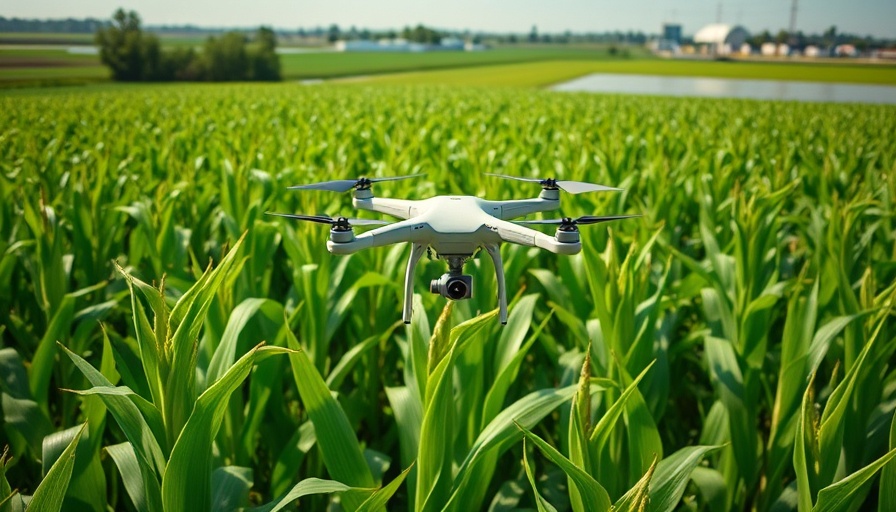
Revolutionizing Corn Production: Affordable Drought-Tolerance Selection
Innovative technologies are reshaping agriculture, making it possible for farmers to tackle some of the most pressing challenges posed by climate change. A recent breakthrough from researchers at the Genomics for Climate Change Research Center (GCCRC) in Brazil showcases how a simple drone and an inexpensive camera can play a pivotal role in selecting drought-tolerant corn varieties.
The Power of Technology in Agriculture
As the world grapples with increasing water scarcity and challenging climatic conditions, the agricultural sector must adapt. The combination of drones and affordable imaging technology allows for rapid and precise assessments of plant health. While traditional methods often require costly and time-consuming procedures, using this new method can significantly expedite the selection process for crops that can endure water stress.
"Experiments with genetically modified plants are expensive. This method allowed us to assess the plants' tolerance to drought in a relatively small area, using free software and a simpler RGB camera that captured the parameters of the experiment more effectively than the more expensive multispectral camera," comments Helcio Duarte Pereira, a researcher at GCCRC.
How It Works: The Experimental Process
During the dry season of 2023, researchers conducted drone flights over an experimental corn plantation in Campinas, Brazil, which was planted with 21 varieties of corn. This included three conventional varieties and 18 genetically modified strains aimed at enhancing drought resistance. The drone collected vital data faster and at various growth stages, facilitating a continuous analysis that helps uncover how different corn varieties respond to water stress.
This process offers insights into predicting how these varieties could perform in diverse conditions, potentially transforming farming practices not just locally, but globally. It marks a shift towards more data-driven agriculture that could ensure food security in the face of climate change.
Implications for Modern Farming Practices
This drone and camera technology promises not only cost-effectiveness but the capability to monitor plants continuously, which is crucial in understanding their resilience under stress. As stated by Juliana Yassitepe, another researcher involved in the study, "The continuous analysis was essential to understand how they respond to water stress and predict their behavior in other areas."
This methodology opens the door to precision agriculture, where farmers can make data-backed decisions to enhance crop yields while ensuring sustainability. The adoption of such technologies will likely pave the way for a new era in farming, benefitting both the environment and agricultural productivity.
The Future of Drought-Tolerant Crops
As the climate continues to change, innovations like these are essential. The methodology demonstrated by the GCCRC not only enhances the selection of drought-resistant plants but also reinforces the viability of using tech-focused solutions to meet agricultural needs. Moving forward, it will be imperative for more agricultural stakeholders to adopt such methods, fostering a more resilient and sustainable food system.
 Add Row
Add Row  Add
Add 




Write A Comment